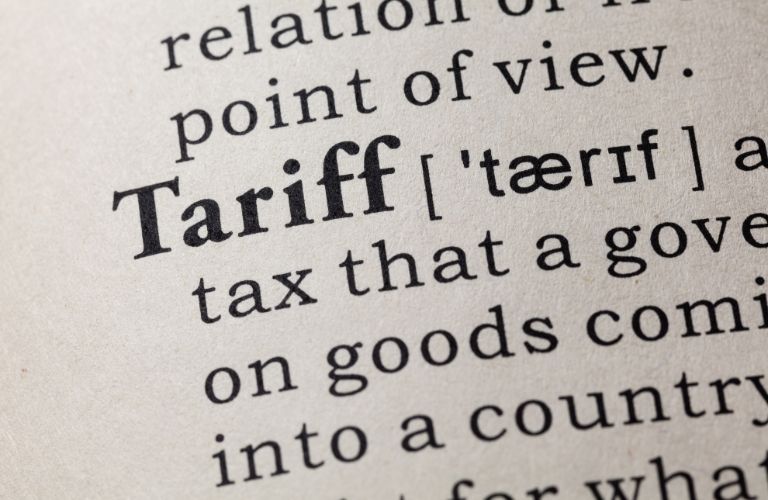How Will Tariffs Impact the Trucking Industry?
Published:May 9, 2025
Updated:Jun 10, 2025
3 min. read
Tariffs are in the headlines and impending trade tariffs promise to have an impact on the economy at many different levels — including in the trucking and freight industry. We want to help trucking companies excel and drive success with innovative solutions at TenTrucks and we know that many trucking companies are asking — how will tariffs impact the trucking industry? We are here to help answer your questions at TenTrucks.
What Do Tariffs Mean in the Trucking Industry?

Many companies across the United States and around the globe have already felt the impact of the impending trade tariffs and know that they will continue to impact the prices of goods and services. What is more — the tariffs promise to have a ripple effect on the economy that will impact much more than just prices. Tariffs present a real challenge for trucking companies — but can be mitigated with preparation, the right strategies, and the right tools and technology.
Here is a better look at the different ways trade tariffs may impact trucking and freight companies:
Increased Material and Part Costs
Tariffs will have the biggest impact on products and materials — which will have an impact on equipment, parts, fuel, and new vehicles. American Trucking Associations estimate that the price of a new tractor trailer could increase by as much as $35,000 with tariffs. Increased costs for parts and equipment will force companies to pay close attention to repairs and maintenance and to reduce costs where possible. A Transportation Management System (TMS) like TenTrucks can provide fleet maintenance management solutions that will help companies avoid excessive repair costs.
Reduced Freight Volume
Trucking companies that transport cargo across borders in the United States, Canada, and Mexico may see reduced freight volume with companies importing fewer goods from international suppliers and relying more on local suppliers. Higher prices expected for consumers due to the impact of tariffs may also lead to a lower demand for goods, which can lead to less cargo, fewer shipments, and lower profit margins for trucking and freight companies. Trucking companies can combat reduced volume by finding ways to be more efficient in their operations.
Disrupted Supply Chain
Tariffs will be felt most by carriers that operate across international borders and many shippers are expected to look for local suppliers. This change has the potential to disrupt the supply chain for many freight carriers and lead to potential delays or loss of business. Freight companies that are impacted by tariffs may need to adapt their operations to fit the new reality and focus on regional shipping.
Driver Retention
Driver retention is already a challenge for trucking and freight companies. The increased costs associated with tariffs and reduced freight volume will have an impact on the bottom line for many trucking companies. This impact has the potential to lead to layoffs and with a degree of economic uncertainty, many experienced truck drivers may look for alternative career options, making the challenge of driver retention even more complicated.
READ MORE: How Does AI Impact the Trucking and Transportation Industry?
Tariffs are in the headlines for many media outlets and freight carriers are asking — how will tariffs impact the trucking industry? We hope that this overview has provided some insight into how tariffs could impact freight and transport companies in the future.
Contact TenTrucks today for more information on our TMS platform and dispatching services!